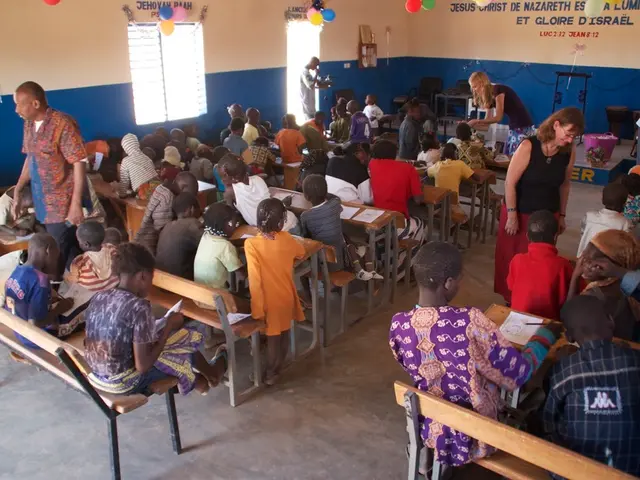Citizen Reactions Reveal Deep Fear Amidst Power Outage: An Examination of Public Response
An unprecedented power outage, lasting for seven minutes, plunged the entire Iberian Peninsula into darkness a month ago, reviving concerns about preparedness and the public's ability to cope in a crisis. With over a thousand responses to an online survey conducted on Datosour's website, it appears that a significant impact has been felt, with one-third of the respondents reporting fear as a result of the blackout.
The blackout's emotional effect was palpable, indicating that a relevant number of individuals experienced it with trepidation. This emotion could influence their sense of security, trust in institutions, and readiness for future similar events.
According to the survey, three-quarters of the respondents were either at home or at work when the power outage occurred, with proportions similar to those reported by the Center for Sociological Research (CIS) following the incident. Responses gathered by CIS showed lower levels of fear experienced by citizens, suggesting that the survey conducted by Datosour might have captured a more visceral reaction.
Upon the loss of electricity, domestic tasks that require power, such as cooking, refrigerating food or medication, emerged as the most missed services, followed by telephones and the internet. Interestingly, respondents showed little concern for the functionality of payment systems or fuel refilling stations.
As preparation for future outages, respondents primarily turned to non-plug-in radios, batteries, and flashlights to stay informed and reduce uncertainty until power was restored. The radio was the primary means of communication, with 62.1% of the respondents tuning in at some point during the blackout. Radio Nacional was the most popular station.
In light of the event, approximately 40% of respondents did not feel the need to buy anything special, while around 20% stated that they already had all necessary items.
To dive deeper into the demographic impact, men were more likely to claim that they had everything they needed, compared to women, who stocked up on essentials like food, water, and flashlights. Younger adults under 45 were more likely to buy emergency items compared to older adults, with those aged 60 and above being the least concerned.
In the aftermath of the blackout, stocking up on cash and maintaining phone batteries were some of the most common reactions. However, for most people, the power outage did not lead to a long-lasting change in daily habits. Those who felt afraid were more likely to adjust their behavior compared to those who did not experience fear during the blackout.
Four out of ten participants expressed a reasonable concern about another blackout occuring. This fear seemed to prompt changes in behavior among those who held the belief, with more adjustments made compared to those who did not fear another blackout.
Public discourse focused on the power outage, its causes, and the investigation for more than a week. However, a definitive explanation has yet to come to light, and the topic has since been set aside. Despite the extraordinary nature of the blackout, a month later, its impact appears less severe than initially anticipated, with six out of ten respondents stating that it had a minimal or non-existent impact on their lives.
According to the respondents, despite the disruption of services, their level of preparedness to face another power outage remains relatively unchanged. Although more than one-third of participants feel more prepared for future blackouts, many remain indifferent, with some even admitting that they are not prepared.
By age, younger individuals and women appeared to feel more prepared, as well as those living in urban areas. Older adults were less concerned about emergency preparations, with people between 30 and 44 expressing greater concerns about fuel and non-cooking food supplies.
In conclusion, the power outage in the Iberian Peninsula caused a significant impact, revealing public preparedness challenges while simultaneously emphasizing the need for emergency planning and improved grid resilience. Despite the concern, it seems that long-term behavioral changes may be minimal.
The survey indicates that the power outage has influenced people's feelings of security and readiness for future events, with one-third of respondents experiencing fear. In the realm of politics and general news, the blackout's impact on public preparedness and grid resilience remains a topic of discussion, as over four out of ten participants express concern about another blackout occurring.








